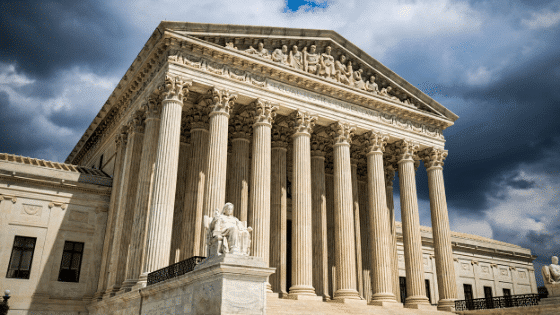It is not sufficient to claim that is it absolutely impossible to recover incompatible State aid. It must be shown that alternative methods have been actually tried without success. Introduction It is rather impossible for Member States to prove that it is absolutely impossible to recover State aid that has been found by the Commission, and confirmed by EU courts, […]
State Aid Law
Blog
State Aid Uncovered Blog
In Lexxion’s State Aid Uncovered blog, Prof. Phedon Nicolaides publishes weekly critical analyses of recent State aid judgments and decisions. Each post presents the key points of a court judgment or EU Commission decision, places it in the context of similar case law or practice, assesses the underlying reasoning and highlights any inconsistencies or contradictions.
Guest contributions from other State aid experts will also be published on the blog at irregular intervals to complement the content of the blog posts.
- Greece v Commission ×
1. June 2021 |
State Aid Uncovered
by Phedon Nicolaides
31. March 2020 |
State Aid Uncovered
by Phedon Nicolaides
Compensation for costs incurred as a result of a natural disaster is State aid. The compensation must be for damage directly caused by the natural disaster. Introduction State aid to make good the damage caused by an “exceptional occurrence” such as the corona virus covid-19 is compatible with the internal market. The legal basis for exemption is Article 107(2)(b). Of […]
4. February 2020 |
State Aid Uncovered
by Phedon Nicolaides
The “net avoided cost methodology” takes into account only incremental costs. Introduction The two most difficult issues in the design of State aid measures to support services of general economic interest [SGEI] are the proper definition of the public service obligation [PSO] and the identification of the “counterfactual” on the basis of which the public service compensation [PSC] is calculated. […]
13. October 2014 |
State Aid Uncovered
by Phedon Nicolaides
Price regulation can constitute State aid if the state forgoes potential revenue. However, for price regulation to constitute State aid it must satisfy all of the criteria in Article 107(1). Price regulation that affects all competitors proportionately does not confer an advantage and therefore does not constitute State aid. Introduction On 11 September 2014, the General Court, in case […]
2. September 2014 |
State Aid Uncovered
by Phedon Nicolaides
Article 107(1) also applies to payments that offset the damage caused by natural disasters. It is irrelevant that the compensation is partial or that competitors did not suffer similar damage. A measure can be State aid even if it is partially or wholly funded by private resources. It is sufficient that the resources come under state control. A measure is […]
25. April 2014 |
State Aid Uncovered
by Phedon Nicolaides
Recipients of State aid obtain an advantage even if they do not succeed to improve their position on the market. Recipients of State aid obtain an advantage whenever their competitors in intra-EU trade do not receive the same aid from the same source. Even small amounts of aid can disturb intra-EU trade where there is strong cross-border competition. The European Commission is not […]
- Greece v Commission ×
1. June 2021 |
State Aid Uncovered
by Phedon Nicolaides
It is not sufficient to claim that is it absolutely impossible to recover incompatible State aid. It must be shown that alternative methods have been actually tried without success. Introduction It is rather impossible for Member States to prove that it is absolutely impossible to recover State aid that has been found by the Commission, and confirmed by EU courts, […]
31. March 2020 |
State Aid Uncovered
by Phedon Nicolaides
Compensation for costs incurred as a result of a natural disaster is State aid. The compensation must be for damage directly caused by the natural disaster. Introduction State aid to make good the damage caused by an “exceptional occurrence” such as the corona virus covid-19 is compatible with the internal market. The legal basis for exemption is Article 107(2)(b). Of […]
4. February 2020 |
State Aid Uncovered
by Phedon Nicolaides
The “net avoided cost methodology” takes into account only incremental costs. Introduction The two most difficult issues in the design of State aid measures to support services of general economic interest [SGEI] are the proper definition of the public service obligation [PSO] and the identification of the “counterfactual” on the basis of which the public service compensation [PSC] is calculated. […]
13. October 2014 |
State Aid Uncovered
by Phedon Nicolaides
Price regulation can constitute State aid if the state forgoes potential revenue. However, for price regulation to constitute State aid it must satisfy all of the criteria in Article 107(1). Price regulation that affects all competitors proportionately does not confer an advantage and therefore does not constitute State aid. Introduction On 11 September 2014, the General Court, in case […]
2. September 2014 |
State Aid Uncovered
by Phedon Nicolaides
Article 107(1) also applies to payments that offset the damage caused by natural disasters. It is irrelevant that the compensation is partial or that competitors did not suffer similar damage. A measure can be State aid even if it is partially or wholly funded by private resources. It is sufficient that the resources come under state control. A measure is […]
25. April 2014 |
State Aid Uncovered
by Phedon Nicolaides
Recipients of State aid obtain an advantage even if they do not succeed to improve their position on the market. Recipients of State aid obtain an advantage whenever their competitors in intra-EU trade do not receive the same aid from the same source. Even small amounts of aid can disturb intra-EU trade where there is strong cross-border competition. The European Commission is not […]
- Greece v Commission ×
1. June 2021 |
State Aid Uncovered
by Phedon Nicolaides
It is not sufficient to claim that is it absolutely impossible to recover incompatible State aid. It must be shown that alternative methods have been actually tried without success. Introduction It is rather impossible for Member States to prove that it is absolutely impossible to recover State aid that has been found by the Commission, and confirmed by EU courts, […]
31. March 2020 |
State Aid Uncovered
by Phedon Nicolaides
Compensation for costs incurred as a result of a natural disaster is State aid. The compensation must be for damage directly caused by the natural disaster. Introduction State aid to make good the damage caused by an “exceptional occurrence” such as the corona virus covid-19 is compatible with the internal market. The legal basis for exemption is Article 107(2)(b). Of […]
4. February 2020 |
State Aid Uncovered
by Phedon Nicolaides
The “net avoided cost methodology” takes into account only incremental costs. Introduction The two most difficult issues in the design of State aid measures to support services of general economic interest [SGEI] are the proper definition of the public service obligation [PSO] and the identification of the “counterfactual” on the basis of which the public service compensation [PSC] is calculated. […]
13. October 2014 |
State Aid Uncovered
by Phedon Nicolaides
Price regulation can constitute State aid if the state forgoes potential revenue. However, for price regulation to constitute State aid it must satisfy all of the criteria in Article 107(1). Price regulation that affects all competitors proportionately does not confer an advantage and therefore does not constitute State aid. Introduction On 11 September 2014, the General Court, in case […]
2. September 2014 |
State Aid Uncovered
by Phedon Nicolaides
Article 107(1) also applies to payments that offset the damage caused by natural disasters. It is irrelevant that the compensation is partial or that competitors did not suffer similar damage. A measure can be State aid even if it is partially or wholly funded by private resources. It is sufficient that the resources come under state control. A measure is […]
25. April 2014 |
State Aid Uncovered
by Phedon Nicolaides
Recipients of State aid obtain an advantage even if they do not succeed to improve their position on the market. Recipients of State aid obtain an advantage whenever their competitors in intra-EU trade do not receive the same aid from the same source. Even small amounts of aid can disturb intra-EU trade where there is strong cross-border competition. The European Commission is not […]








